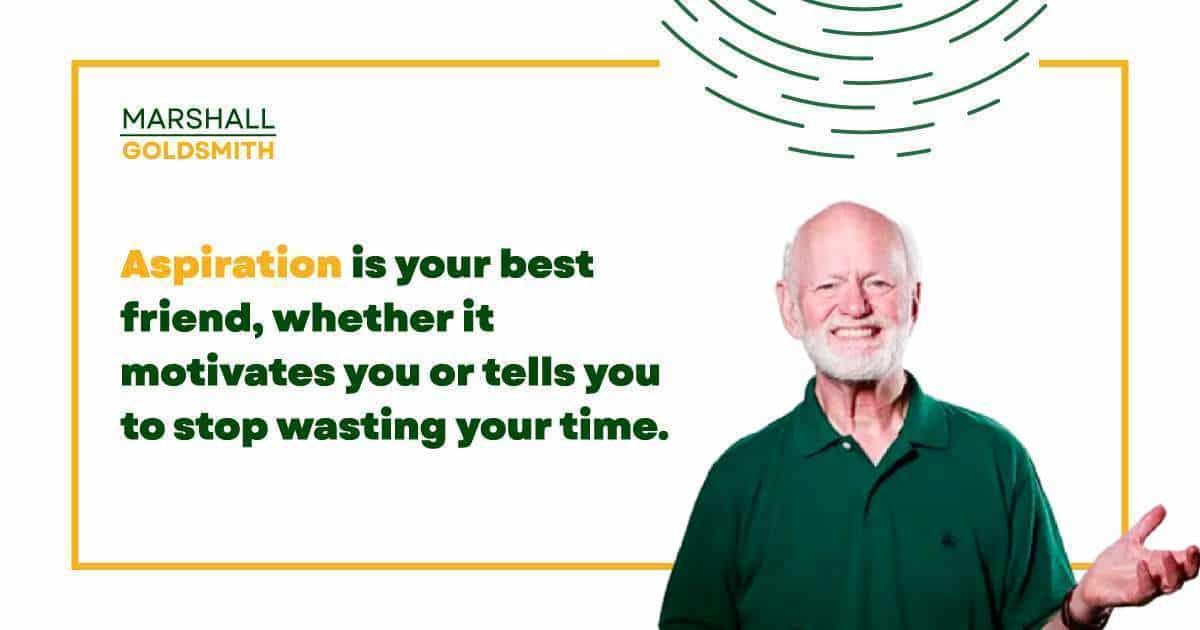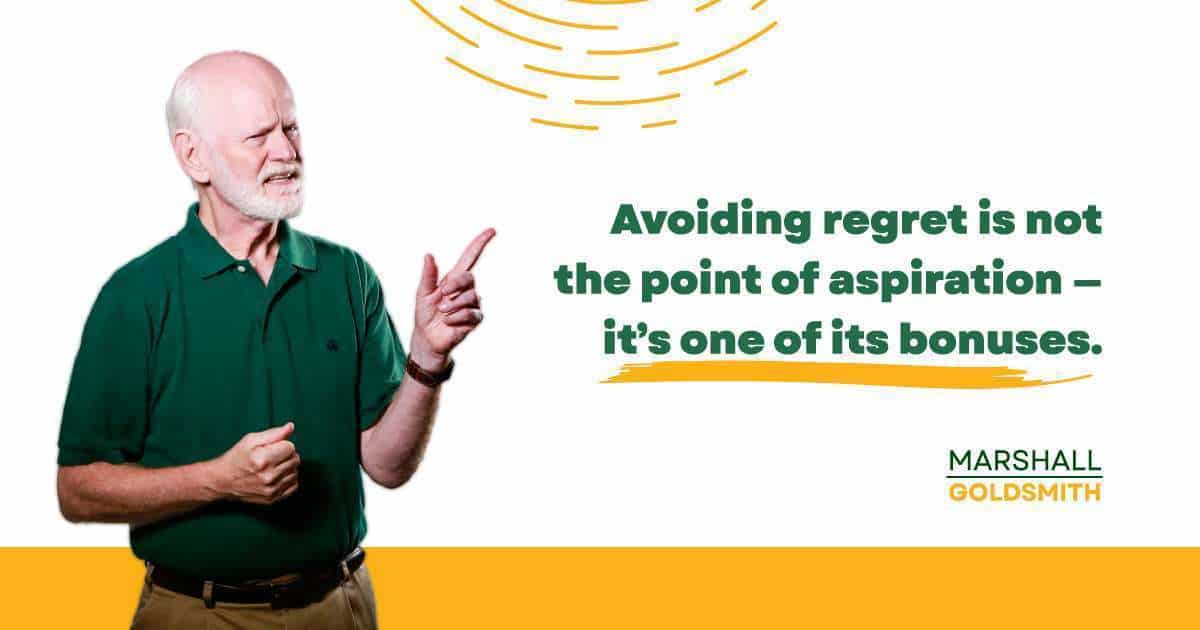Playing Favorites By Marshall Goldsmith There’s a reason I devote...
Far too many people settle for lives that they don’t find fulfilling because they are hesitant to take a risk that might not pay off. They don’t understand that aspiration isn’t about certainty, but about growth — incremental growth.
They might not appreciate that aspiring to something such as becoming a lawyer is an incremental process that reveals its value gradually and that, if they’re lucky, continues to enhance its value over the course of their lives.
When we aspire to be a lawyer, we go to law school, and over three years of classes and lectures and late night study, we experience detours, surprises, and hardships that deliver an outcome we could not imagine on our first day of class. We either become fully engaged with the law or we conclude it’s not the life for us.
It’s only by aspiring to something—by enjoying, enduring, or despising the process—that we know which outcome we prefer. We must engage in the Aspirational experience in order to understand the fulfillment it will or won’t provide going forward. We cannot simply imagine it. It’s a simple dynamic, either way. In the best of cases, we learn to love the law as we aspire to become a lawyer. We become more devoted to the law and then become an even better lawyer.
In the worst case, we find something else to devote our lives to. But we’ve learned that law isn’t for us. This is part of what makes Aspiration one of the more effective regret-avoidance mechanisms in our lives.
Avoiding regret is not the point of Aspiration — it’s one of its bonuses. At every point in the Aspiration process, we get marginally closer to knowing whether our efforts will be satisfying or futile. This also suggests that at any point, especially if we’re miserable, we can reverse course, before we begin to regret.

Here’s an example:
Let’s say that you have decided to Aspire to appreciate classical music. You hit a roadblock on the way — you don’t feel the joy and elevated appreciation for the music that you had hoped for, or you’re unwilling to continue making the effort to satisfy your original intention, which involves listening, concert-going, even learning to read a musical score. For you, this challenging Aspiration has become a chore, and you have learned enough.
Nothing is stopping you from ending this particular Aspiration long before you regret the wasted time and energy you put into it. Consider that the best field generals are masters of retreat as well as attack.
Unlike your ambitions, which are not easily concealed from others, your Aspirations are private matters, involving your pursuit of hidden capabilities and values. You alone know what you’re up to. You alone judge the outcome. You alone perceive the slow but steady creation of a new you. You alone earn the sense of fulfillment that comes with working to care about something new. And you alone have the power to call it off.
I appreciate the irony that while I’m extolling Aspiration as an essential motivating function that lifts us to perfect our noblest instincts, I’m also saying that it has a valuable braking function, like an early warning system telling us to stop and rethink what we’re doing.
Don’t let this double role confuse you.
Aspiration is your best friend, whether it motivates you or tells you to stop wasting your time.
It’s certainly an improvement on achieving a long-held Ambition, only to end up asking yourself, “Is that all there is?”

Adding Too Much Value Won’t Get You There By Marshall...
C-Suite Master Class: No, But, However By Marshall Goldsmith Continuing...
The Doerr Institute: Expanding the Market for Coaches By Marshall...
Making Leadership Development Part of the College Degree at Rice...
Sanyin Siang – Winner of the Thinkers50 Marshall Goldsmith Coaching...
Thinkers50 Marshall Goldsmith Distinguished Achievement Award in Coaching – Nominees...
Leading with Influence: What Is Influence360°? By Marshall Goldsmith Founder...
Are You a Dominator, Manipulator, Persuader or Influencer? By Marshall...
Leading with Influence: Redefining Modern Influence Part 2 By Marshall...
My mission is simple. I want to help successful people achieve positive, lasting change and behavior; for themselves, their people, and their teams. I want to help you make your life a little better. With four decades of experience helping top CEOs and executives overcome limiting beliefs and behaviors to achieve greater success, I don’t do this for fame and accolades. I do this because I love helping people!
As an executive educator and coach, I help people understand how our beliefs and the environments we operate in can trigger negative behaviors. Through simple and practical advice, I help people achieve and sustain positive behavioral change.